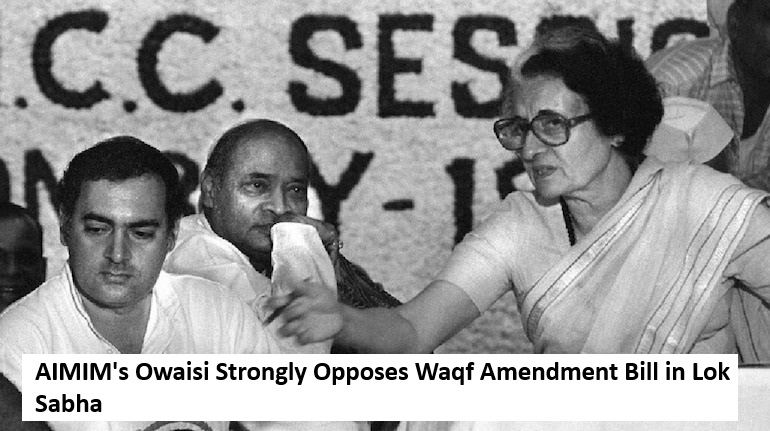
In a long debate in the Lok Sabha, AIMIM leader Asaduddin Owaisi raised a strong objection to the Waqf Amendment Bill. He described the Bill as unconstitutional and, during his speech, tore a copy of it. Owaisi referred to Mahatma Gandhi’s past protests and compared his actions to Gandhi’s civil disobedience.
He urged the government to accept the ten amendments he had suggested. To support his claims, Owaisi cited a 1976 letter written by the then Prime Minister Indira Gandhi. In that letter, Gandhi had asked several state governments to resolve Waqf property issues through administrative means.
Indira Gandhi's 1976 Letter on Waqf Properties
The letter, dated March 26, 1976, was addressed to chief ministers of Punjab, Haryana, Himachal Pradesh, Maharashtra, Madhya Pradesh, Rajasthan, and Delhi. It confirmed Owaisi's claim and mentioned how Waqf properties had been taken over by private individuals and government departments after Partition.
Gandhi suggested avoiding legal action and resolving the disputes through administrative solutions. Her three main proposals were:
Where possible, return the Waqf properties to the Waqf Boards.
If the properties had significant buildings on them, set up permanent leases with the Waqf Boards and pay them a large share of the market value.
Alternatively, compensate the Waqf Boards with the market value, and have them give up claims to the land either directly or through the relevant caretakers.
More Requests from Indira Gandhi in the Letter
Gandhi also attached a list of such properties and asked for a monthly review report to be submitted to the Minister of Wakfs and herself. She further asked the states to consider exempting Waqf properties from Rent Control Acts, which stopped the Waqf Boards from increasing rent on their assets. She said that Waqf properties, being public and charitable in nature, should be treated differently than private landlords.
Gandhi noted that some states like Andhra Pradesh, Kerala, Karnataka, and Tamil Nadu had already made such exemptions.
Owaisi’s Constitutional Concerns
In the debate, Owaisi said the Bill violated Article 14 of the Constitution, which guarantees equality. He argued that the new law allows encroachers to gain ownership and permits non-Muslims to be part of Waqf Boards, which he said goes against the principle of equal rights.
Government’s Response
Minority Affairs Minister Kiren Rijiju clarified that the Bill would not be applied retroactively. He also said the central government would not gain more control through the Bill. Rijiju emphasized the need to use Waqf properties for the welfare of underprivileged Muslims, especially in education, healthcare, and employment.
Read More: The Hostel Segregation Row What the SC Stay on UGC 2026 Regulations Means for You

 Share
Share


_1531794722_100x75.jpg)
_591321350_100x75.jpg)